The sperm whale that washed up on La Palma Island in June attracted attention because it contained a $545,000 chunk of ambergris in its stomach, but it wasn't the most expensive.
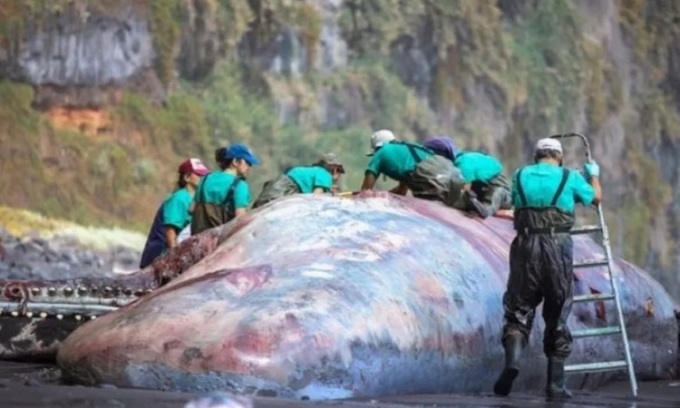
A sperm whale carcass containing ambergris worth $545,000 washed up on La Palma Island. Photo: IUSA
A team of veterinary pathologists from the University of Las Palmas de Gran Canaria (ULPGC) visited the site of the sperm whale’s carcass that washed up on La Palma Island, near the Canary Islands, Spain, in June to investigate the cause of death. During the investigation, Antonio Fernández, director of the Institute of Animal Health and Food Security (IUSA) at ULPGC, found a large, hard mass of ambergris in the whale’s intestine, measuring approximately 50-60 cm in diameter and weighing 9 kg. This rare object has an estimated value of up to 545,000 USD.
Previously, in September 2021, fisherman Narong Phetcharaj found a 30 kg block of ambergris on a beach in Surat Thani province, Thailand, according to SCMP . The object is estimated to be worth one million USD.
Narong Phetcharaj found a 30 kg block of ambergris in Thailand. Video : SCMP
In February 2021, fishermen from the village of al-Khaisah, Yemen, came across a dead sperm whale while at sea, according to Newsflare . In addition to the two ships already on site, they had to mobilize nine other ships to drag the carcass to the shore near Mount Shamsan, Aden province, southern Yemen. By noon of the same day, the group of fishermen began to dissect the sperm whale. A total of more than 100 fishermen participated in dissecting the animal's belly, protecting the 127 kg ambergris block and selling it for $1.5 million to a businessman in the UAE.
In 2020, fisherman Naris Suwannasang discovered what looked like pale rocks while walking on the beach in Nakhon Si Thammarat, southern Thailand, according to the India Times . He and a few cousins brought them back to examine. They lit them with a lighter, causing them to immediately melt and release a fragrant smell, which helped them confirm that they were ambergris. The blocks of objects were estimated to weigh 100 kg and be worth up to $3 million.
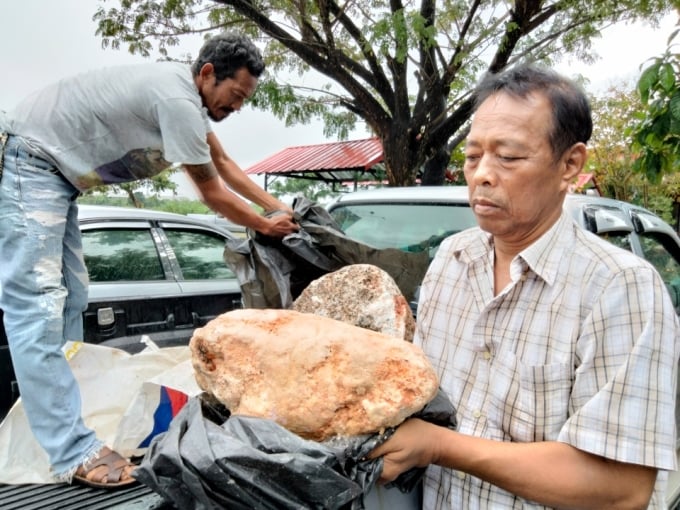
Naris Suwannasang with blocks of ambergris in southern Thailand. Photo: Viral Press
Fossil evidence of ambergris dates back some 1.75 million years, and humans may have been using the substance for more than 1,000 years. Ambergris has been called the treasure of the sea or “floating gold.”
The origins of ambergris have been a mystery for many years. Theories abound, including hardened sea foam and even the droppings of large birds. It was not until large-scale whaling began in the 1800s that experts discovered the identity of the “manufacturer” of ambergris: the sperm whale ( Physeter macrocephalus ).
Sperm whales eat large amounts of cephalopods , such as squid and cuttlefish. In most cases, the hard, indigestible parts of their prey are regurgitated before being digested. But sometimes, these parts make their way into the intestines. Scientists believe sperm whales secrete ambergris to protect their internal organs from the squid's sharp, hard beaks, according to the Natural History Museum in London.
Ambergris can grow inside sperm whales for years before being excreted. But in some cases it can cause dangerous blockages that can kill the whale.
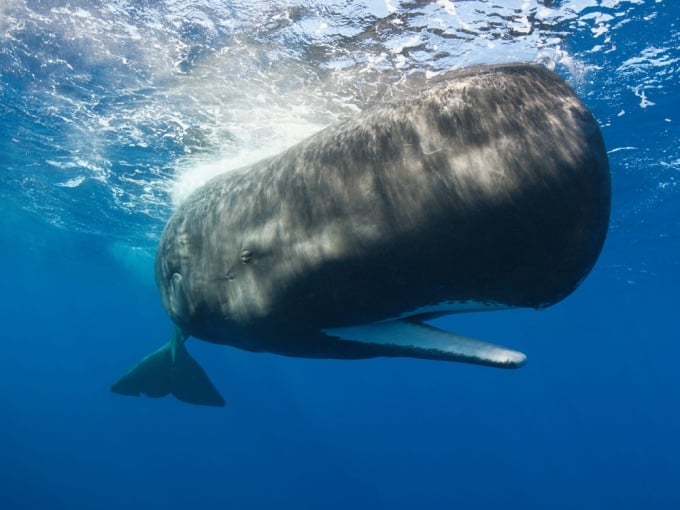
Sperm whales - "producers" of ambergris. Photo: Reinhard Dirscherl
Sperm whales are found all over the world , meaning that ambergris can float in almost any ocean or wash up on any beach. But the substance is actually very rare, found in less than 5% of sperm whale carcasses. Some experts believe that the lesser sperm whale ( Kogia breviceps ) and dwarf sperm whale ( Kogia sima ), which eat a lot of cephalopods, also secrete ambergris, but in smaller amounts.
Ambergris initially has a foul odor, but after drying, it gives off a sweet and long-lasting scent. This makes ambergris a precious ingredient in the high-end perfume industry and brings high economic value.
Thu Thao ( Synthesis )
Source link


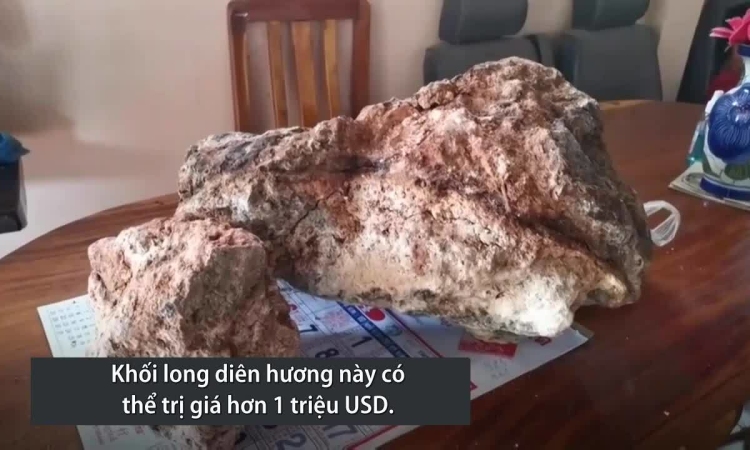
![[Photo] Hanoi morning of October 1: Prolonged flooding, people wade to work](https://vphoto.vietnam.vn/thumb/1200x675/vietnam/resource/IMAGE/2025/10/1/189be28938e3493fa26b2938efa2059e)















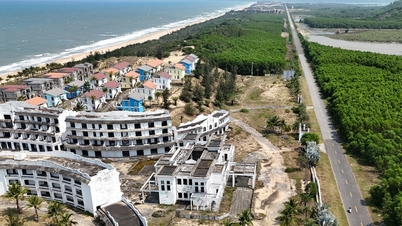



















![[Photo] Panorama of the cable-stayed bridge, the final bottleneck of the Ben Luc-Long Thanh expressway](https://vphoto.vietnam.vn/thumb/1200x675/vietnam/resource/IMAGE/2025/9/30/391fdf21025541d6b2f092e49a17243f)
![[Photo] The 1st Congress of Phu Tho Provincial Party Committee, term 2025-2030](https://vphoto.vietnam.vn/thumb/1200x675/vietnam/resource/IMAGE/2025/9/30/1507da06216649bba8a1ce6251816820)
![[Photo] President Luong Cuong receives President of the Cuban National Assembly Esteban Lazo Hernandez](https://vphoto.vietnam.vn/thumb/1200x675/vietnam/resource/IMAGE/2025/9/30/4d38932911c24f6ea1936252bd5427fa)


























































Comment (0)